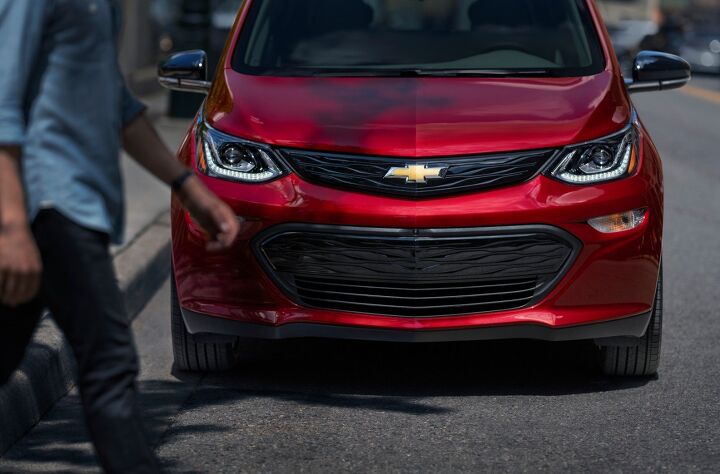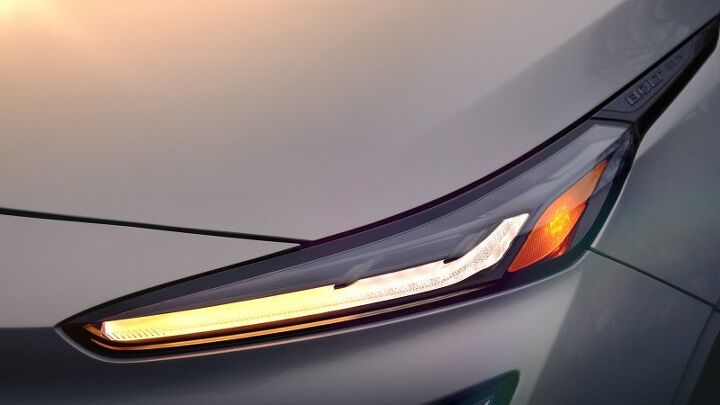#Euv
Chevy Bolt Fire Fix Allegedly Finalized
The Chevrolet Bolt has evolved from being General Motors’ superstar EV, radiating optimism for the company’s ambitious electrification strategy, to a public relations nightmare in relatively short order. While sales of the hatchback (and EUV) actually skyrocketed in Q2 of 2021, thanks largely to a diminished production output from the same period in 2020, shoppers are becoming aware of the fire reports and prolonged recall campaign that followed.
Another chapter has been added to that story, with GM now convinced that this will be the conclusion of the dejected tale. On Monday, the manufacturer issued an announcement that batteries for the Bolt had resumed production. But they won’t be coming out of the South Korean facility owned by LG Chem that’s been alleged as ground zero for the relevant defects. GM has instead elected to source the units from Michigan while LG improves quality assurance with the automaker peering over its shoulder, hopeful that customers will someday be able to use their car normally. Sadly, that moment still looks to be several months away.
The Chevrolet Bolt is Becoming Embarrassing for GM
If you’ve been following the Chevrolet Bolt, then you know it’s gone from a competitive front-motor, five-door all-electric subcompact to a tinderbox on wheels. Battery issues have resulted in numerous recalls while the associated fire risk is gradually making it the spiritual successor to the Ford Pinto flambé edition. Though, in fairness, the Bolt issue is nowhere near as devastating as those vintage Ford fires and pales in comparison to the General Motors’ own faulty ignition switch fiasco that left over 100 people dead.
It’s still leaving a bad impression, however, and GM’s latest decision (prudent as it might be) won’t be helping. As part of the recall campaign, the manufacturer has advised owners not to park the vehicle inside garages or close to buildings. It also has a charging protocol for customers to use to help minimize its risk of spontaneous combustion. Following yet another fire incident, GM has updated those recommendations and now advises drivers to park the Bolt at least 50 feet away from all other vehicles.
GM Upset With Battery Supplier, Expands Bolt Recall Again
On Friday, General Motors announced that its recall of the Chevrolet Bolt would result in a loss of $1 billion. But only after it expanded the campaign to encompass every electric vehicle it has produced. Rather than a single $800-million defect requiring fire-prone models to come back for repairs, GM is now confronting two problems and including Bolts (and Bolt EUVs) from 2019 onwards. The automaker has said this will necessitate an additional billion-dollar financial setback.
Keen to avoid being the recipient of the swelling public outrage, the manufacturer has been trying to shift criticism onto battery supplier LG Chem. The South Korean firm has been involved in numerous fire-related recalls pertaining to electric vehicles and GM would very much like to remind you of that, rather than take the blame for building and selling EVs that it’s advising customers not to charge too much or park anywhere near their home.
Chevrolet Teases Bolt 'EUV' One Component at a Time
Chevrolet has issued a close-up shot of the Bolt EUV to maximize its marketing mileage ahead of the official debut. It looks like we’ll be seeing the “Electric Utility Vehicle” (crossover) delivered to us piecemeal as General Motors has already issued a darkened silhouette of the model’s exterior and a similarly shadowy peak of what’s going on inside.
Carefully spaced to drop right when the public forgot that Chevy was building the Bolt’s bigger brother, we’ve been given our first image of the model with the correct lighting — and it actually gives us a real sense of what the automobile might look like when the lid is finally lifted.
Bolt Pattern: GM Seeks Trademark for 'Bolt EUV'
General Motors has already announced it will build a new electric Chevrolet to serve as a sibling to the all-electric Chevrolet Bolt. This makes sense, as the technology and underpinnings of that car – not to mention all the R&D investment – should be shared with other GM machines. In today’s market, that likely means some sort of electric crossover or SUV.
All signs definitely point in that direction now, with the discovery of a new patent filing. Earlier this month, GM sought to trademark the term “Bolt EUV” — our best hint yet that the next electron-powered Chevy will be a market-pleasing crossover.



















Recent Comments